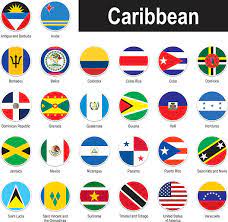Citizenship Vs Residency?

Citizenship is a state of membership and belonging to a sovereign state, where citizens receive all rights, privileges, and responsibilities defined by the laws of that state, including voting, participating in politics, enrolling in schools and universities, and receiving world-class healthcare services. While residency is a document that allows individuals to stay in a country for a specific period but should be renewed regularly to remain valid. A residence permit sometimes referred to as \’Golden Visa\’ by some countries, allows people to enter the country at any time, purchase real estate, obtain health insurance, and enroll children in schools.
However, it doesn’t give the holder any political rights, voting rights, or the right to apply for a passport with few exceptions. The permanent residency gives individuals the right to reside in the host country for a long duration, and in most instances access to many of the privileges enjoyed by the country\’s citizens such as free healthcare and subsidized education. Most of the Golden Visa programs have very minimal residency requirements to maintain residency, however, qualifying for citizenship may require additional residency requirements depending on the country.

Citizenship VS Residency requirements
Citizenship can be obtained by parentage and marriage, as well as through investment programs, where applicants can get lifetime citizenship and passport within a few months if they meet the minimum investment requirements for that country. Investors or families holding the new citizenship can reap the same benefits that a natural-born citizen would have and can also pass the citizenship to their children for life.
To obtain citizenship applicants need to invest in a real estate property and hold this property for a specific period. Individuals can also make an economic contribution to the government or national funds. Some programs allow the investor to obtain dual citizenship through financial assets, such as investing in government bonds in a local business approved by the government or by creating a new startup. All these programs are regulated by the government with strict due diligence and checks.
However, residency can be provided in different ways, the most common of which are investing in the economy, purchasing real estate, opening a business, and enrolling in a university, among other ways. But the applicant can get a residence permit faster and easier in exchange for an investment. Some countries ask applicants to visit the host country a certain number of times, whereas others do not.
To obtain a residency some programs stipulate that applicants should have a clean criminal record, should show the source of the investment funds, and should invest in one of the government-approved options, such as real estate, government bonds, or a national economic fund. Many countries enable investors to start the path to citizenship after holding golden visas for a certain time.
Citizenship VS Residency by countries

The main countries that provide citizenship by investment programs are Grenada, Dominica, Antigua and Barbuda, Saint Lucia, Malta, Turkey, Vanuatu, and St. Kitts, and Nevis, each of which offers unique opportunities for travel and investment. While the countries that provide residency by investment programs include Portugal, Cyprus, Greece, Malta, Spain, UAE, and United States. Holders of a residence permit in an EU country can live indefinitely in that country with unrestricted visa-free access to countries within the Schengen zone.
Benefits of Citizenship, and residency programs
Citizenship VS Residency programs provide to a fair extent the same benefits, as both programs enable investors to live, work, and study in the host country, and provide them a plethora of business benefits, being able to work, conduct business, and benefit from tax incentives. It also allows individuals and high-net-worth individuals to access promising business opportunities, travel without a visa to more than 130 countries, and access world-class healthcare services, and top-notch educational services, in addition to living in a politically and economically stable country.
Increased global restrictions and scrutiny have led investors and entrepreneurs to be more vigilant about their financial assets in recent years because many states levy hefty taxes on earned income and profits on both corporate and personal finances. It also provides access to valuable tax regimes and business regulations that favor investors. Both programs have proven to be powerful tools for securing investments and safeguarding wealth. Nations with low tax levels, provide investors with enormous financial savings due to the reduction or absence of taxes. Investors suffering from political or economic instability would have an alternative plan if anything went wrong in their homeland.
Select your suitable program
The countries providing Citizenship VS Residency programs have a lot to offer to investors and individuals from the Middle East and Africa who are looking to flee political tensions, enjoy a better quality of life, and invest in lucrative sectors. However, choosing the most appropriate program depends on your requirements and preferences. For assistance and guidance to select the most suitable program

